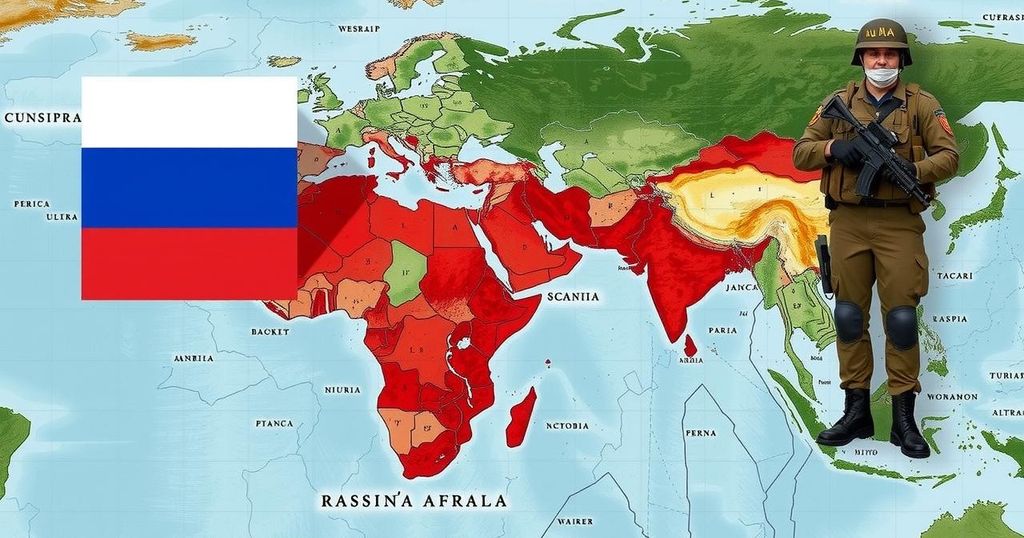The Erosion of Russian Security Influence in Africa Following Syrian Setbacks

The article discusses the decline of Russian influence in Africa as a consequence of its military setbacks in Syria. Following the fall of Assad, Russia faces logistical challenges that threaten its support for African allies, raising doubts about its reliability as a security partner. This has implications for Russia’s broader geopolitical ambitions and its future strategy in Africa.
The recent developments surrounding Russia’s military involvement in Syria have significantly tarnished its reputation as a reliable security provider, especially in Africa. The fall of Syrian President Bashar al-Assad indicated the apparent limits of Russia’s influence in the Middle East, revealing critical failures, particularly its military overcommitment in Ukraine which hindered its ability to support Assad. Consequently, this has led to increased vulnerability regarding vital military bases such as Tartus and Khmeimim, both of which have been key to Russia’s strategic operations not only in Syria but also in wider African engagements.
As challenges mount, Moscow’s inability to maintain its military presence in Syria could disrupt its logistical capabilities essential for supporting its interventions in Africa. This shift has led to waning confidence among African nations, with autocrats doubting Russia’s reliability as a security ally. The strategic importance of Syria to Russia’s military operations, particularly in supplying militaristic support to allies like Libya and Mali, underscores the intricacies of its geopolitical maneuvers. With logistical routes to Africa becoming strained, Russia’s capability to uphold its economic interests in the region through mineral extraction is increasingly jeopardized.
As Moscow grapples with the harsh realities of diminished military influence and capability projection, it remains uncertain how it will navigate relations with Syria’s new authorities. The future of Russia’s African strategy hinges not only on its military interventions but on how it recalibrates its approach amidst the shifting dynamics of regional power alliances. While Moscow may seek new partnerships, the overall perception of its reliability and effectiveness as a security provider has taken a severe hit, stressing the need for a conceivable shift toward soft power or proxy engagements in the area.
Over the last decade, Russia has aggressively sought to reestablish itself as a global power, particularly in the Middle East and Africa. However, its ambitions have been challenged by military setbacks and strategic reevaluations. The Syrian conflict has been instrumental in illustrating the limitations of Russia’s military reach and predictability as it has faced significant losses, particularly in relation to the Assad regime. This context is crucial for understanding Russia’s recent challenges in maintaining influence over African nations, which have often sought partnerships with Moscow in the face of Western interventions.
In conclusion, the deterioration of Russia’s military standing in Syria represents a critical juncture for its ambitions in Africa. The loss of strategic bases and the ongoing conflict have raised serious questions about Russia’s capacity to provide security and military support to its African allies. As the Kremlin confronts the implications of its actions in Syria, it becomes imperative for Russia to recalibrate its engagements and redefine its narrative to retain its influence in a rapidly evolving geopolitical landscape.
Original Source: foreignpolicy.com






